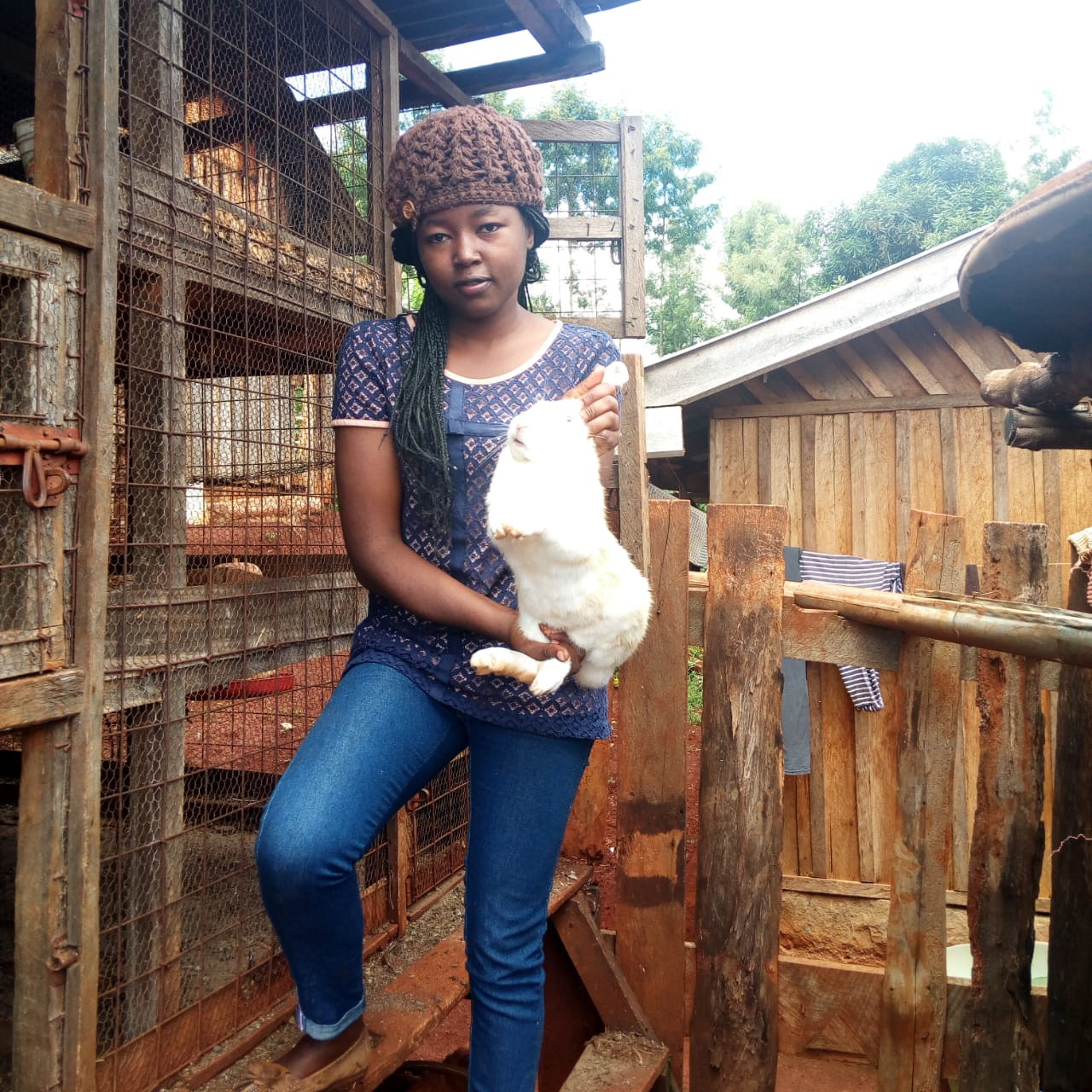Rabbit keeping for years has been perceived as a boys’ trade, with many keeping the small ruminants not for income but as a source of adventure.
Young girls are, however, dismantling this perception, proving true the mantra that what a man can do, a woman can do even better.
Teresa Nyokabi, 22, a second year student at Nyeri National Polytechnic is one of the young women engaging in rabbit-keeping.
Teresa, who is studying fashion design, tends to the rabbits when she is not in college.
“Our college is not far from home therefore I get time to feed my rabbits and clean their houses,” says Teresa, who hails from Othaya sub-county.
The 22-year-old says the idea of rabbit farming was conceived by her elder sister.
“I started rabbit farming two years ago. The idea came from my elder sister, Zipporah Kibiri, an agripreneur, who supported me,” she reveals, adding that she used Sh5,000 capital given by her mother.
She started with four rabbits, two male and the rest females of the California white and Flemish giant breeds. The young farmer currently has 90 rabbits, after selling some of them.
She sells a rabbit that is 2-3 months old at Sh800, whereas a five-month-old one goes at Sh1,500.
The student sells her rabbits via social media platforms such as Facebook and farmers’ websites, getting money to pay her school fees.
“Rabbit meat has quite a large market in hotels and through online platforms. I am able to sell to individuals who are as far as Homa Bay,” says the young farmer, who gets knowledge on rabbit rearing from e-books.
According to her, rabbits are friendly animals and need low starting capital. “You only start with a doe and a buck, which multiply very fast before they are prolific breeders.”
One of the major challenges in rabbit farming, she says, is diseases such as pneumonia and pests like fleas and lice.
Additionally, getting sufficient funds to expand her agribusiness is another setback for the young farmer.
She feeds her rabbits hay, fresh vegetables, fruits as well as pellets. In addition, she gives them fresh water.
Her elder sister, she reveals, has been of tremendous help, especially on online marketing of the animals.
The family uses manure from the rabbits to grow brachiaria grass and maize. “It improves soil structure and it is rich in nutrients,” says the farmer, adding that apart from rabbit farming, they also grow strawberries and sell silage and brachiaria splits to other farmers.
Her plan is to register her own company and have out-growers because the market is growing, is growing, she observes.
“Our college is not far from home therefore I get time to feed my rabbits and clean their houses,” says Teresa, who hails from Othaya sub-county.
The 22-year-old says the idea of rabbit farming was conceived by her elder sister.
“I started rabbit farming two years ago. The idea came from my elder sister, Zipporah Kibiri, an agripreneur, who supported me,” she reveals, adding that she used Sh5,000 capital given by her mother.
She started with four rabbits, two male and the rest females of the California white and Flemish giant breeds. The young farmer currently has 90 rabbits, after selling some of them.
She sells a rabbit that is 2-3 months old at Sh800, whereas a five-month-old one goes at Sh1,500.
The student sells her rabbits via social media platforms such as Facebook and farmers’ websites, getting money to pay her school fees.
“Rabbit meat has quite a large market in hotels and through online platforms. I am able to sell to individuals who are as far as Homa Bay,” says the young farmer, who gets knowledge on rabbit rearing from e-books.
According to her, rabbits are friendly animals and need low starting capital. “You only start with a doe and a buck, which multiply very fast before they are prolific breeders.”
One of the major challenges in rabbit farming, she says, is diseases such as pneumonia and pests like fleas and lice.
Additionally, getting sufficient funds to expand her agribusiness is another setback for the young farmer.
She feeds her rabbits hay, fresh vegetables, fruits as well as pellets. In addition, she gives them fresh water.
Her elder sister, she reveals, has been of tremendous help, especially on online marketing of the animals.
The family uses manure from the rabbits to grow brachiaria grass and maize. “It improves soil structure and it is rich in nutrients,” says the farmer, adding that apart from rabbit farming, they also grow strawberries and sell silage and brachiaria splits to other farmers.
Her plan is to register her own company and have out-growers because the market is growing, is growing, she observes.

